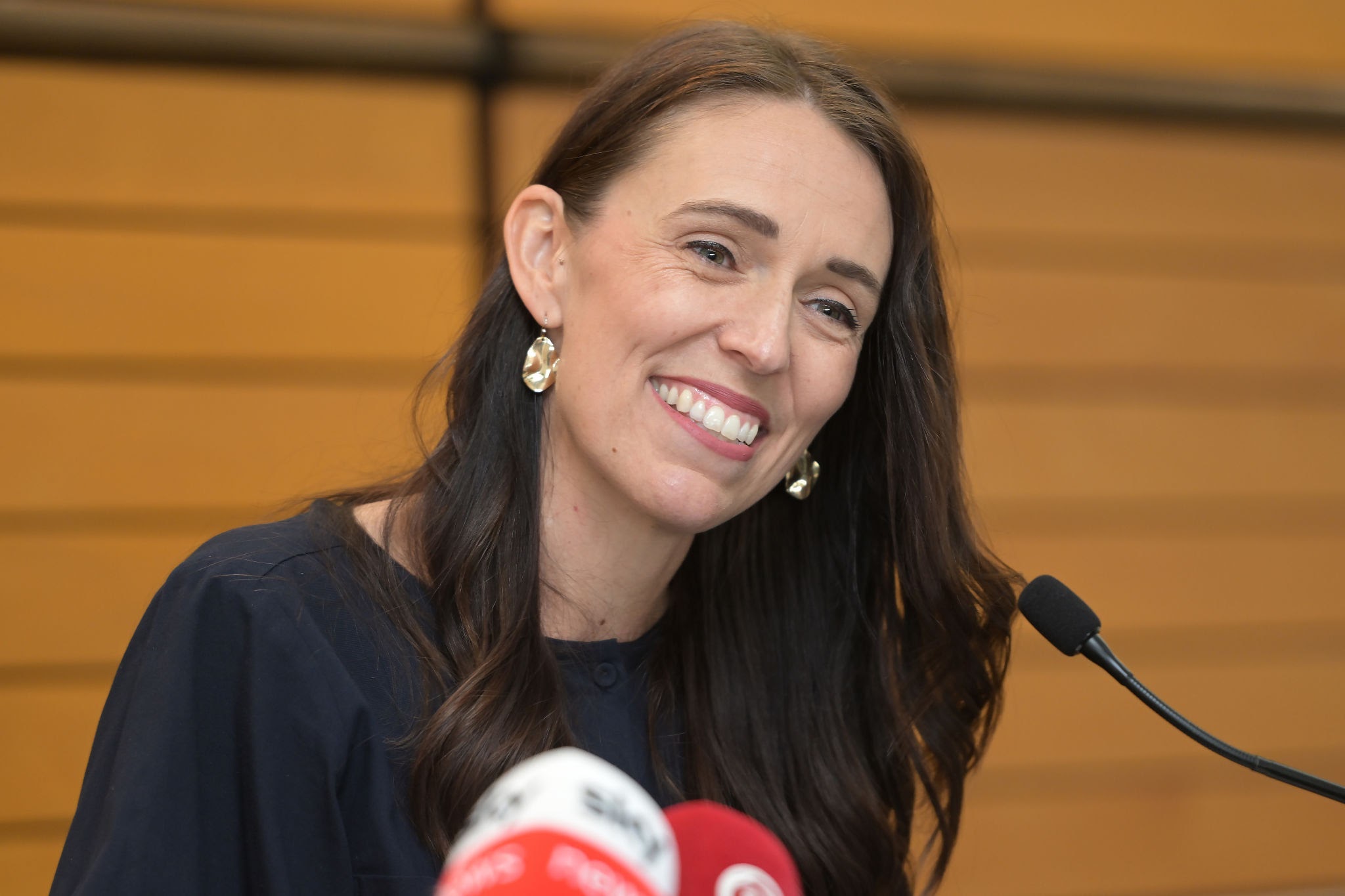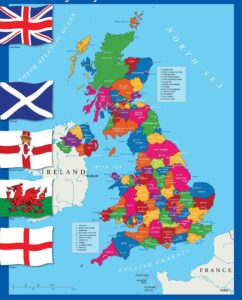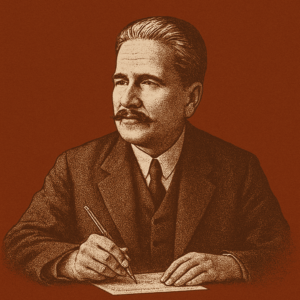Jacinda Ardern, a name that resonates with progressive leadership, compassionate governance, and a unique place in the world of politics. Born in Hamilton, New Zealand, on July 26, 1980, Jacinda Kate Laurell Ardern rose to prominence as a remarkable force in New Zealand’s political landscape. Her journey from a small-town upbringing to becoming the 40th Prime Minister of New Zealand is a captivating narrative of determination, charisma, and a commitment to inclusive policies. Ardern’s leadership has left an indelible mark not only in her home country but on the global stage, earning her accolades for her response to crises, including the tragic Christchurch mosque shootings and the unprecedented challenges posed by the COVID-19 pandemic. In this blog, we will explore the life, political career, and the impact of Jacinda Ardern, a leader known for her progressive vision and compassionate approach to governance.

Early Life and Education
Jacinda Ardern was born on July 26, 1980, in Hamilton, New Zealand. She grew up in a small town and attended the University of Waikato, where she earned a Bachelor of Communication Studies in Public Relations and Political Science.
Political Career
Ardern’s political career began when she joined the New Zealand Labour Party in her early twenties. She worked as an advisor to former Prime Minister Helen Clark and held positions in the offices of various members of parliament.
Entry into Parliament
Jacinda Ardern was elected as a Member of Parliament (MP) in 2008, representing the Auckland electorate of Mount Albert. She became the youngest MP in New Zealand’s Parliament at the time.
Rise to Leadership
Ardern was elected as the leader of the New Zealand Labour Party in August 2017, just weeks before the general election. Under her leadership, the party experienced a surge in popularity, known as the “Jacinda Effect.”
Prime Minister of New Zealand
Following the 2017 general election, the Labour Party formed a coalition government with New Zealand First and the Green Party, and Jacinda Ardern became the Prime Minister of New Zealand on October 26, 2017.
Policy Priorities
Ardern’s government has focused on issues such as child poverty, housing affordability, climate change, and social well-being. She gained international recognition for her empathetic and inclusive leadership style, particularly during times of crisis.
Notable Achievements
Ardern’s handling of the Christchurch mosque shootings in 2019 and the COVID-19 pandemic in 2020 received widespread praise for her compassionate and effective response.
Personal Life
Jacinda Ardern is known for her down-to-earth and approachable demeanor. She is married to Clarke Gayford, a television presenter, and they have a daughter together.
International Recognition
Ardern has been recognized internationally for her leadership and contributions to politics and has received various awards and honors. Jacinda Ardern is often praised for her compassionate leadership style, progressive policies, and her ability to connect with the public on a personal level. She has become a significant figure on the global stage for her approach to governance and her handling of various challenges.
Some Other Reasons:
There are various reasons for admiring and appreciating Jacinda Ardern, the Prime Minister of New Zealand. Here are some of the common factors that contribute to her popularity:
Empathetic and Compassionate Leadership
Ardern is known for her empathetic and compassionate approach to leadership. She demonstrates genuine care and concern for the well-being of her constituents, especially during times of crisis.
Effective Crisis Management
Ardern’s handling of major crises, such as the Christchurch mosque shootings in 2019 and the COVID-19 pandemic in 2020, earned her widespread praise. Her calm, composed, and decisive response to these events resonated with many people.
Inclusive and Progressive Policies
Ardern’s government has championed policies aimed at reducing child poverty, addressing housing affordability, and combatting climate change. Her focus on social well-being and progressive values aligns with the priorities of many New Zealanders.
Accessible and Approachable Demeanor
Ardern is known for her down-to-earth and approachable demeanor. She engages with the public in a relatable and personable manner, making her seem more accessible than some other political leaders.
Promotion of Diversity and Inclusion
Ardern advocates for diversity and inclusion in New Zealand. Her government has taken steps to promote gender equality, address systemic racism, and support marginalized communities.
Strong Stance on Climate Change
Ardern and her government have been proactive in addressing environmental issues. New Zealand has committed to ambitious climate targets, demonstrating a commitment to combating climate change.
International Recognition
Ardern’s leadership style and accomplishments have garnered international attention and recognition. She is often praised on the global stage for her inclusive and progressive approach to governance.
Balancing Family and Leadership
Ardern’s ability to balance her role as a mother with her responsibilities as Prime Minister is often cited as an inspiration. Her willingness to normalize and openly discuss the challenges of being a working mother resonates with many.
Handling of the COVID-19 Pandemic
New Zealand’s successful management of the COVID-19 pandemic, under Ardern’s leadership, earned her praise both domestically and internationally. The country’s early and decisive action helped contain the virus’s spread.
Positive International Image
Ardern’s leadership has contributed to a positive international image of New Zealand, and she is often viewed as a role model for leaders around the world.
Read also:
Nostalgic Pictures of Social Media Sensation Zartasha Kashif
📍 English Language Educator | Blogger & Content Strategist | 7+ Years in Educational Blogging
Nosheen Bashir is a dedicated English teacher and experienced blogger with over seven years of expertise in content creation and educational writing. Passionate about language, literature, and effective communication, she combines her teaching experience with blogging skills to create insightful, research-backed content that helps learners and educators alike.
🔹 Expertise & Achievements:
✔ English Language Education: A skilled educator with years of experience in teaching English grammar, literature, and communication skills to students of varying levels.
✔ Educational Blogging: Running a successful blog for 7+ years, delivering well-structured, engaging content on language learning, writing techniques, and academic success.
✔ SEO & Content Strategy: Specializes in creating high-ranking, authoritative articles that follow Google’s EEAT principles, ensuring content that is both informative and search-friendly.
✔ Student-Centric Approach: Committed to making English easier, engaging, and accessible, helping readers and students improve their language proficiency.
🚀 With a passion for teaching and writing, Nosheen Bashir is dedicated to crafting educational content that empowers students, teachers, and language enthusiasts worldwide.








